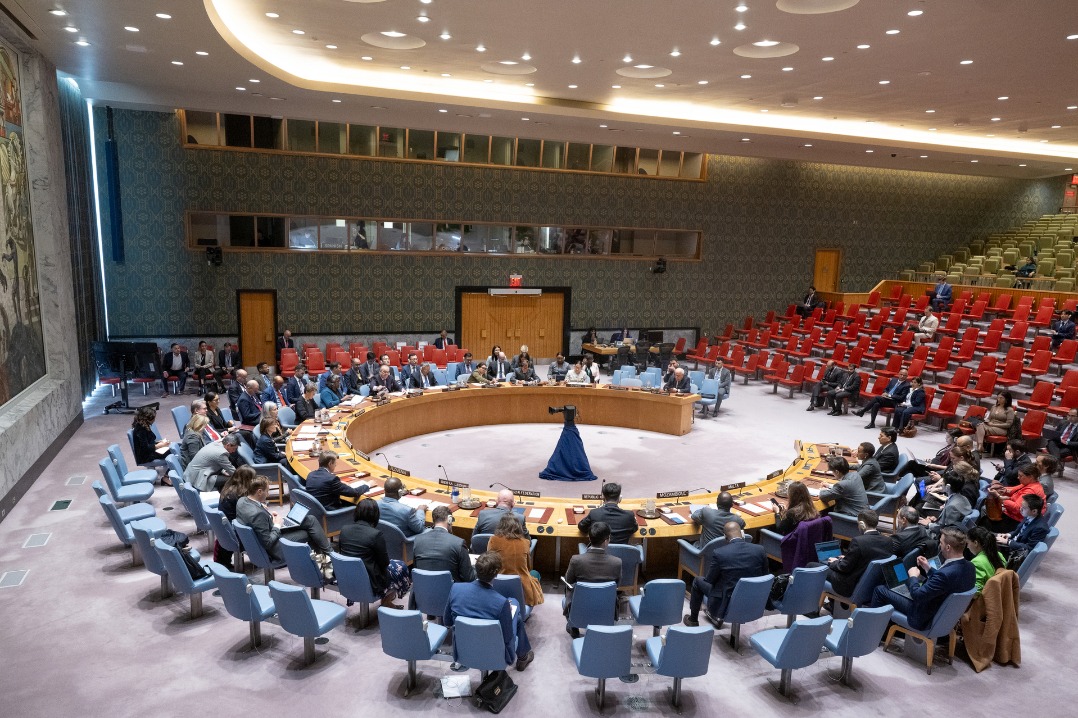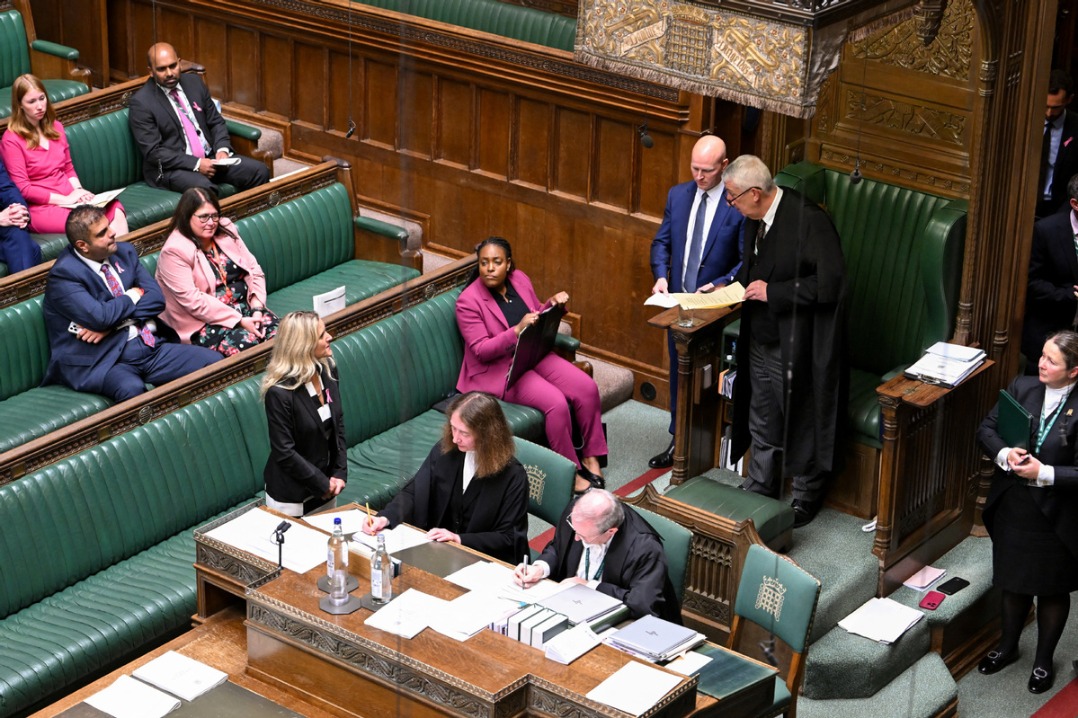Decoupling result of US' China policy
Washington aims to suppress Beijing instead of fair competition, experts say


Capital market decoupling between the United States and China is occurring to some extent, and US restrictions targeting China have played a significant role, experts said.
The US Department of Treasury issued a statement on Friday saying that Washington would draft rules to carry out an Aug 9 executive order that called for limiting US investments "in certain national security technologies and products in countries of concern".
The rules, applying to artificial intelligence, semiconductors and quantum information technologies, would prohibit some transactions in certain technologies and products that "pose a particularly acute national security threat to the United States", or would require that the Treasury be first notified of the transactions.
US venture capital firms are also pressuring technology startups to cut ties with Chinese investors, as they expect Washington to tighten controls on foreign ownership, the Financial Times reported on June 7.
HeyGen, a generative AI startup founded in Shenzhen in 2020 that later relocated to Los Angeles, asked its Chinese investors to sell shares to their US counterparts, FT reported.
"There is no question in my mind that these developments are hugely influenced by the US government's tech bans and inbound and outbound investment screening and denial orders," Sourabh Gupta, a senior fellow at the Institute for China-America Studies in Washington, told China Daily.
"The VC market, understandably, is simply reacting to the US government's heavy-handed de jure and de facto prescriptions."
In 2018, then-US president Donald Trump signed the Foreign Investment Risk Review Act, which applied greater scrutiny to certain equity investments in areas related to critical technologies, critical infrastructure or businesses with sensitive personal data, as well as certain types of real estate transactions, without explicitly naming China.
Gupta said that since then, the US government's goal has been to shut down any gaps in those areas to prevent Chinese entities from using even a minority investment position in early-stage companies to obtain new technology.
US President Joe Biden signed an executive order last August to establish a foreign investment review mechanism to restrict US entities from investing in China's semiconductors and microelectronics, quantum information technology, and artificial intelligence fields.
In September 2022, Jake Sullivan, US national security adviser, listed three "families of technologies" — advanced computing, including chips, AI and quantum; biotechnologies and biomanufacturing; and clean area technologies — where the US would seek to maintain a lead.
Gupta said those areas are where the US side would essentially seek to "decouple" from China.
"I think the impact of these policy decisions in the medium to long term will be momentous," Gupta said.
On Monday, China's Ministry of Commerce said the US has repeatedly emphasized that it has no intention of "decoupling" from China or hindering China's economic development. However, it insists on issuing proposed rules to restrict US companies' investments in China and suppress the normal development of Chinese industries, the ministry said in a statement.
Gupta noted that US-China economic interdependence over the past four decades was built on their different endowments and comparative advantages.
However, as China "has raced up the technology ladder", the difference in comparative advantage in the technical areas has shrunk markedly, leading to greater resemblance than difference today in industrial structures, particularly in advanced manufacturing sectors.
Goal laid bare
"And so, the goal for the US going forward is to decouple and suppress China in these sectors rather than countenance fair competition," Gupta said.
William Jones, a nonresident fellow at the Chongyang Institute for Financial Studies, said US venture capitalists would certainly like to get a "piece of the action" in China's high-tech area while the US government is taken aback by China's rapid progress in high-tech, and it seeks to restrain that progress by preventing venture capital from getting involved in China.
"There is also pushback from some of the major business organizations that would like to see a less restrictive policy toward China from the US government. Restrictions by the US government on semiconductors and other fields will slow down, but not stop the development of these technologies by China."
According to Global Corporate Venturing data, US corporate venture capital investors backed just 48 China-based startup financings in 2022, a 48 percent decrease from 2021.
"It is inevitable that more foreign investment will pour into China in the medium term, seeking to cater to final demand locally rather than to produce and export to third-country markets from China," Gupta said.

































